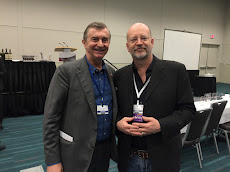 |
| Wine, beer & spirits in British Columbia will cost you - Bill Tieleman photo |
Tuesday July 10, 2012
By Bill Tieleman
"Bill has a column, right -- so I'm warning you -- so if you tell Bill he's wrong, the chances are he's going to get a column out of if."
- Voice Of B.C. host Vaughn Palmer to Rich Coleman, B.C. liquor minister.
Do you believe the price of beer, wine and spirits in British Columbia is reasonable?
That B.C booze costs are comparable to other provinces and American states?
I don't, so I posed a simple question to Coleman on Shaw Cable's Voice of B.C. on May 31.
"Why do consumers of beer wine, and spirits pay among the highest prices in North America for those products?" I asked.
But Coleman immediately rejected my conclusion when Palmer asked: "Is he right about that?"
"Not really, no. We have a pretty comparable price structure to the rest of Canada," Coleman replied.
Oh yeah? I may only be a columnist and wine blogger, but I think the minister is wrong.
And some quick research on beer, wine and spirits prices indicates we often pay more -- sometimes much more -- than in other jurisdictions.
In B.C. government liquor stores, Labatt Blue beer costs $22.29 for 12 bottles, plus $1.20 bottle deposit, for a total of $23.49.
So how come in Chicago, Illinois, the imported Blue can be found for just $10.98 U.S. a case at Binny's private stores? That's less than half price!
Or why is it $18.50 a case in Ontario and $20.18 in Quebec at an IGA store?
How does Binny's in Chicago sell it for just $16.54 U.S.?
Coleman's corkers
Perhaps such price differences are why Coleman hedged his bets under questioning by Palmer after initially saying I was dead wrong.
Palmer: "He knows his wine, Mr. Tieleman, he's pretty knowledgeable about pricing, I think he might be right."
Coleman: "I don't think he is. I mean, we watch prices, there are some jurisdictions that have different pricing structures. You can go look at some types of liquor, some types of beer, whatever, and see differences between jurisdictions."
Palmer: "Bill has a column, right -- so I'm warning you -- so if you tell Bill he's wrong, the chances are he's going to get a column out of if."
Coleman: "He's not totally wrong because on some of it there is higher prices. A premium Scotch is higher in B.C. than it is in Alberta. But the floor price on some of our spirits is lower than in Alberta.
"So it's really how we tax it and how we take our revenues out of it, and in B.C. we make $900 million that goes into this fiscal plan for government, so that's where our pricing is."
Some B.C. prices are indeed lower than Alberta and other locations.
Let's drink Kentucky bourbon Wild Turkey for $28.95 a bottle in B.C., $28.25 in Ontario, $27.60 in Quebec -- or an easier to swallow $22.93 in Chicago.
That same bottle is $31.87 in privatized Alberta at a Calgary store.
But when one of the biggest selling beers brewed in Canada costs half the B.C. price in Chicago and $5 less in Ontario, I'd say someone's making a lot of windfall cash.
Higher prices for worse wine
Compare B.C., Ontario and Quebec's government liquor store profits.
B.C., as Coleman notes, makes about $900 million from selling liquor, while the Liquor Control Board of Ontario reported a $1.6 billion dividend to government from sales and the Societe Alcool de Quebec just announced a $1 billion net revenue.
But B.C.'s population is 4.6 million, Quebec's is 7.9 million and Ontario's is 13.4 million -- that's a lot more revenue per person from booze sales in B.C.
Yes there are differences between the provinces. Quebec allows corner stores and supermarkets to sell wine and beer; Ontario has the Beer Store run by big breweries as well as its stores while B.C. has a mixed public/private store network.
However none of that contradicts the higher prices in B.C. on some identical products.
Maybe that's fine with some B.C. drinkers -- and non-drinkers -- who prefer high prices that help fund government services while discouraging consumption.
But alternatively, high liquor prices are a regressive tax where lower income earners pay disproportionately more of their budget to enjoy a beverage.
It also means that those who drink are likely to purchase cheaper products because of the higher taxation and mark up rates. We pay more for crappier wine.
And despite Coleman saying his plan to privatize B.C.'s liquor warehouse operations won't mean consumers will pay still higher prices, I'm not convinced.
The new private owners will maintain a monopoly on the distribution and will also retain the unionized workers, plus find ways to make a profit -- all without increasing costs?
Here's one more clear reason I'm very dubious -- the same Catena wine priced at $21.09 at B.C. government stores is $27.99 in private B.C. Liquor Depot outlets -- 33 per cent more!
It all may drive me to drink.
.













No comments:
Post a Comment